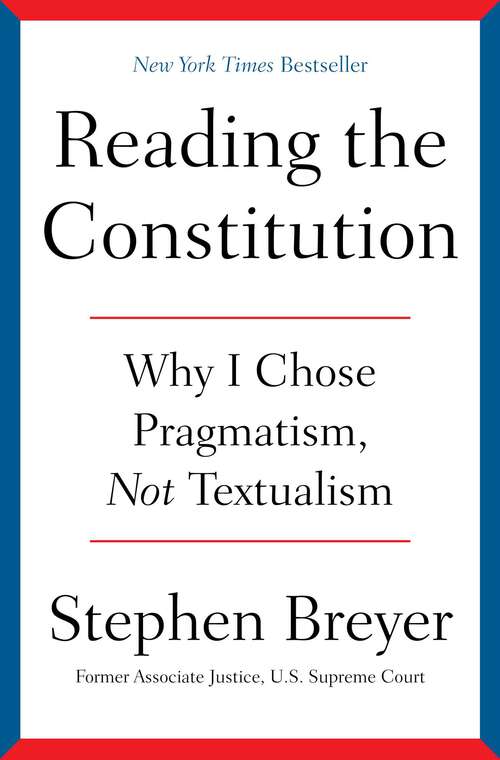Reading the Constitution: Why I Chose Pragmatism, Not Textualism
By:
Sign Up Now!
Already a Member? Log In
You must be logged into Bookshare to access this title.
Learn about membership options,
or view our freely available titles.
- Synopsis
-
A provocative, brilliant analysis by recently retired Supreme Court Justice Stephen Breyer that deconstructs the textualist philosophy of the current Supreme Court&’s supermajority and makes the case for a better way to interpret the Constitution.
The relatively new judicial philosophy of textualism dominates the Supreme Court. Textualists claim that the right way to interpret the Constitution and statutes is to read the text carefully and examine the language as it was understood at the time the documents were written. This, however, is not Justice Breyer&’s philosophy nor has it been the traditional way to interpret the Constitution since the time of Chief Justice John Marshall.
Justice Breyer recalls Marshall’s exhortation that the Constitution must be a workable set of principles to be interpreted by subsequent generations. Most important in interpreting law, says Breyer, is to understand the purposes of statutes as well as the consequences of deciding a case one way or another. He illustrates these principles by examining some of the most important cases in the nation’s history, among them the Dobbs and Bruen decisions from 2022 that he argues were wrongly decided and have led to harmful results.
New York Times Bestseller
- Copyright:
- 2024
Book Details
- Book Quality:
- Publisher Quality
- Book Size:
- 368 Pages
- ISBN-13:
- 9781668021552
- Related ISBNs:
- 9781668021538
- Publisher:
- Simon & Schuster
- Date of Addition:
- 03/26/24
- Copyrighted By:
- Stephen Breyer
- Adult content:
- No
- Language:
- English
- Has Image Descriptions:
- No
- Categories:
- History, Nonfiction, Law, Legal Issues and Ethics, Politics and Government
- Submitted By:
- Bookshare Staff
- Usage Restrictions:
- This is a copyrighted book.
Reviews
Discover
Other Books
- by Stephen Breyer
- in History
- in Nonfiction
- in Law, Legal Issues and Ethics
- in Politics and Government
